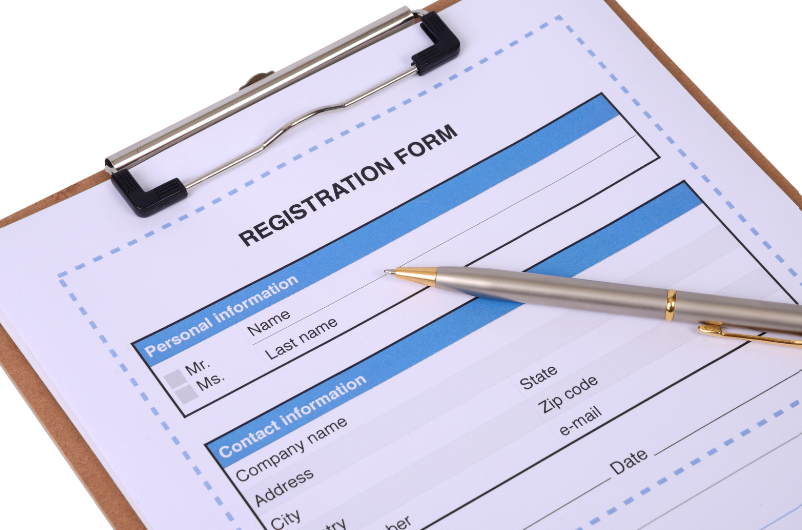There have been two registers operating for land in Scotland for some time. The older Sasine Register is a deed-based register which relies on descriptions contained in the title deeds themselves, often with no reference to a plan to identify the extent of any land, and property registered.
The Land Registration (Scotland) Act 1979 introduced a new map-based Land Register in 1981 which plots the extent of any individual title on a digital cadastral map of Scotland. The cadastral map is itself based upon the most up to date ordnance survey maps. Today any dealing, whether it’s a disposal or charging of property, induces Land Registration in the Land Register of Scotland, but heritable proprietors can make a voluntary registration application to move their titles from the Sasine Register to the Land Register of Scotland even where there is no dealing with the property.
Land registration produces a single title sheet detailing all relevant information in respect of the property, removing the requirement to produce a series of deeds to identify the description, burdens and formal ancillary rights pertaining to any property. The title sheet includes the property description, details of the heritable proprietors, evidence of any fixed securities affecting the property and all relevant burdens which impact same. It also includes a plan of the property.
Registers of Scotland have, since the inception of the Land Register, been moving all properties from the Sasine Register onto the Land Register of Scotland. The Scottish Government set a target to achieve a full mapping of all properties in Scotland onto the Land Register to be completed by 2024. However, the target will not be met.
Moving your title from the Sasine Register to the Land Register by way of a Voluntary Registration application has the following advantages:
- Provides certainty as to what you own
As noted above, Land Registration produces a Title Plan which is plotted on the current OS map. This makes it easier to identify the boundaries of your property and settle any disputes with neighbouring proprietors.
- Protects your rights
In accepting an application for registration, the Keeper warrants to the applicant that, as at the time of registration, the Title Sheet to which the application relates is accurate. As a result, we have had experiences where, despite the Land Registered title being registered erroneously, it is capable of defeating rights registered in the Sasine Register. Therefore, moving properties onto the Land Register of Scotland provides security over what you own and protects your rights from being challenged by a third party. It also provides an opportunity of identifying if your title is not good and enable a claim for compensation from the Keeper.
- Simplifies future transactions
Generally, dealing with Land Registered properties is much more straightforward than Sasine Registered properties. The Title Sheet contains all relevant information relating to the property, therefore the majority of information required by a prospective purchaser or lender is all stored in one place. Furthermore, if you own multiple properties in close proximity, these can be registered on a single title rather than dealing with multiple titles.
- Reduction of Costs
Registration Dues are payable on all applications submitted to Registers of Scotland. Voluntary Registration applications benefit from discounted Registration Dues. As mentioned in the section above, properties in close proximity can be grouped together in a single application. As a result, only one payment of Registration Dues would be necessary, and the cost of required searches would be reduced. Further, the cost of obtaining copy titles is significantly cheaper for Land Registered properties. The cost of obtaining a copy Title Sheet is £3.60 compared with the multiple Sasine deeds required costing £30 per deed.
When determining if a Voluntary Registration application will assist you in managing your stock, you must also consider some of the following disadvantages:
- Timescale for completing the Registration
Registers of Scotland are an independent entity and it can take some time for the application for Voluntary Registration to be processed. However, purchasers and lenders are usually willing to accept titles undergoing registration provided all corresponding evidence of a land registration application is available. Further, the Keeper has a duty to expedite applications if failure to do so would result in financial loss for the applicant. Therefore, if a purchaser or lender were unwilling to accept a title undergoing registration, Registers of Scotland would likely expedite the registration process.
- Lack of definitive information regarding the Sasine properties.
If the titles to your Sasine Registered properties have no plans, or the plans annexed are demonstrative only, then it will be for you, as applicant, to supply fresh plans accurately identifying the properties to be included in any voluntary application. This adds to the costs of making such an application. In some instances there may be multiple deeds which need to accompany any application, including writs referred to for burdens. If no copy deeds are held by the applicant, copies may require to be sourced.
For more information or advice, please contact our property team.






